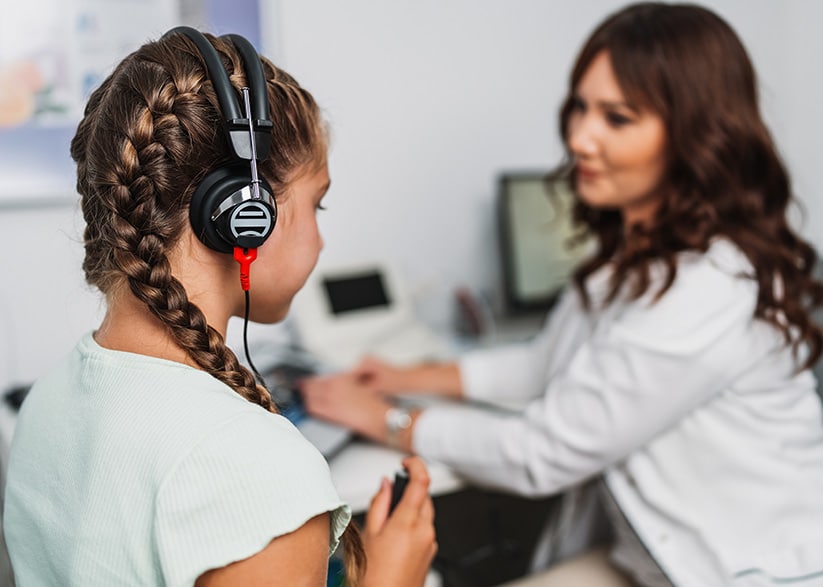
Hearing Loss
and Your Health
Hearing plays a large role in overall health and well-being. Untreated hearing loss is connected to many other aspects of our health including cognition, fall risk, depression, and others. Hearing loss can also occur at a faster rate when you also have other medical comorbidities such as diabetes, heart disease, high blood pressure, high cholesterol, thyroid or kidney disease, and several autoimmune disorders.
Brain health and hearing are also closely related. In fact, research has shown that even a mild untreated hearing loss doubles the risk of cognitive impairment and triples the risk of falling. Treating hearing loss is the easiest risk factor for cognitive impairment that exists.
Additionally, research by Sergei Kochkin, Ph.D. of the Better Hearing Institute in Washington, DC has shown:
Treatment for hearing loss was also shown to improve:
- Earning power
- Communication in relationships
- Intimacy and warmth in family relationships
- Ease in communication
- Emotional stability
- Sense of control over life events
- Perception of mental functioning
- Physical health
- You can hear but you lack clarity
- Group social participation
Just as importantly, treatment for hearing loss was shown to reduce:
- Discrimination toward the person with the hearing loss
- Hearing loss compensation behaviors (i.e. pretending you hear)
- Anger and frustration in relationships
- Depression and depressive symptoms
- Feelings of paranoia
- Anxiety
- Social phobias
- Self-criticism
Hearing aids hold such great potential to positively change so many lives. Contact us today to discuss your options.
Signs of Hearing Loss
- Sounds seem muffled
- It’s difficult to hear when there is background noise
- High pitched sounds (women and children’s voices) are harder to hear
- You frequently ask people to repeat themselves
- You can hear but you lack clarity
- You hear a ringing or other sounds (tinnitus) in your ears
- You are 55 years or older and haven’t had a hearing check in over two years
Signs of Hearing Loss in Children
Hearing loss in children can occur anywhere from birth to later in childhood. Hearing plays a crucial role in language, social, cognitive, and emotional development. It’s important to catch the signs early so you can work with your child’s audiologist to create a management plan and avoid developmental delays.
Here are some hearing milestones your child should reach in their first few years of life:
- Infants should jump or startle at a sudden loud noise
- By 3 months, they should recognize their parent’s voice
- By 6 months, they can usually turn their eyes or head towards a sound
- By 12 months, they should be able to imitate sounds and say a few words, such as “Mama” or “bye-bye”
- By 18 months, they should respond to simple commands and have around 50 words in their vocabulary
- By 2 years, they can put together more than two or more words at a time and have a vocabulary of 200 words or more
- By 3 years, they can participate in short conversations
- They have limited, poor, or no speech
- They are inattentive
- Difficulty learning or poor performance in school
- They need to have the TV at a higher volume
- They fail to respond to conversation-level speech
- They don’t respond to their name
- They become easily frustrated when there is background noise


